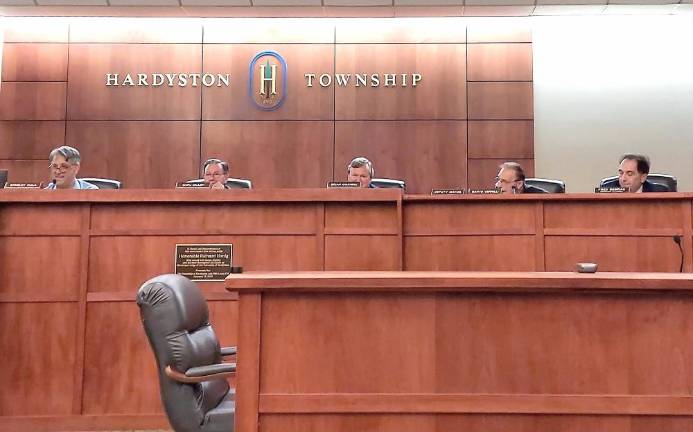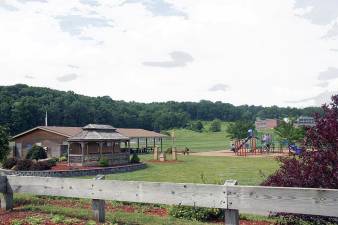Hardyston Council unanimously votes against ordinance to permit farming in certain zones
HARDYSTON. The decision came after public outcry against the potential for animal smells and water contamination from any new farms.

Hardyston Township Councilman Santo Verrilli read the following ordinance that was an upset to residents that came out for the meeting. The ordinance stated: “An ordinance of the Township of Hardyston, County of Sussex, State of New Jersey amending certain portions of Chapter 185, zoning, of the revised general ordinances to permit farming as a principal use in certain zones.”
Hardyston Township Manager Carrine Piccolo-Kaufer discussed at the beginning of the meeting that there was no intention of the governing body to act on this ordinance at the council meeting. The ordinance requires a review to see if it is consistent with Hardyston Township’s Master Plan on the planning board level. The planning board did conduct a review at its May meeting but had not finalized their decision. The ordinance, as drafted, will allow farming in specific residential and non-residential zones throughout the township in support of The Right to Farm Act. Farmland assessment is legislated by the state and allows for reduced property taxes.
Piccolo-Kaufer told the Advertiser that in the State of New Jersey, property that is being farmed and generates income from the farming activity, whether it is the upkeep of livestock or passive farming such as cutting hay or woodland management, is allowed a farmland assessment, which will lower property taxes for the owner of the property. Eligibility for farmland assessment does not depend on the zoning; however, the proposed ordinance would expand the type of farming activity permitted on private commercial and residential property. In addition, Piccolo-Kaufer said that the Township would have allowed farming on properties greater than five acres.
During the public comment section of the meeting, many Hardyston residents expressed upset over the possible approval of the ordinance. Many residents from Indian Field expressed concerns that the ordinance in question is property located at the entrance to Indian Field development along Route 94. Residents felt that if the ordinance is passed, the farming on these commercial properties in front of the development would have a negative impact on the community. Some residents that spoke were concerned about the smells from the farm animals, possible contamination for their water supply, and the upkeep and appearance of the farmed areas. In addition, many residents were upset over the tax break that the owners of these properties would receive if the ordinance was accepted.
After the Council heard the residents speak, the members voted unanimously against adopting the farming ordinance. Council members indicated that many of the concerns were valid and that the decision to allow for farming on many of these properties may be better suited for review on a site-specific basis by the appropriate land use board.
Deputy Mayor Santo Verrilli chaired the meeting in Mayor Frank Cicerale’s absence.
